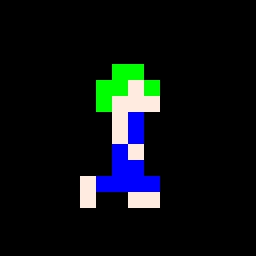What should i be thinking about this?
Should be thinking fuck yes it’s about time, shark me up baybeeee
Too bad it only grows teeth on genitals
Teeth are stored in the balls.
Octopussoi vs Sharkboner?
The sequel to Sharkboy and Lavagirl we didn’t need.
Idk, that sounds better than the actual sequel to Shark boy and Lava girl was.
Even better. Nom nom nom.
Is this gonna cost 10 grand?
Only for Americans
Oof ow I felt that in my cheeseburger flap.
deleted by creator
i wish, most of the world seems to consider teeth and eyes to not be part of the body, and thus not covered by general healthcare…
Hence the term, luxury bones.
In the US, that would be a bargain.
If you only needed 1-2 teeth it’s comparable, but if you need more than that, 10 grand is a pretty good price domestically.
Damn straight. I have a family member that paid 40k for her mouth a little while ago.
I guess it just depends if you have all your teeth or not.
I have one that’s gonna fall out soon.
This probably isn’t going to be available to you then, though it is possible it paves the way for a tooth-replacement treatment. This article seems like bad science communication. The video, tweet, and website they link to all state that they’re researching congenital conditions, the inquiry form linked to on the website explicitly states in English they’re not considering people who lost their teeth later in life and specifically calls out articles like this one as misinformation.
We are currently receiving a large number of inquiries that differ from the purpose of this research, which is very troubling.
This research is a study of therapeutic drugs for people who are missing teeth due to congenital (from birth) diseases (diseases, etc.).
This research is not aimed at restoring teeth to people who have lost their teeth due to acquired causes, as some news and social networking sites have reported.Additionally, we are not currently recruiting candidates for clinical trials (adult males).Which isn’t too unexpected. Having it as an IV treatment would mean it’s not targeted. I don’t understand how something like that could replace individual teeth that were damaged, and not just didn’t grow because of a lack of something in the body.
If I had to guess (not being a toothologist), I’d think there would have to be some sort of injection, or implant, to trigger an individual tooth replacement.
Thanks for going deeper. Any chance you could answer why? Why is it’s use limited?
It’s well outside my field so I’m definitely not qualified to answer that, but the trials seem to be building on this study so that might give more insight.
It’s not my area of expertise (oral cancer), but I can guess.
Some authors have proposed that in humans there may be a third set of tooth organs on which this drug could be used. This theory could explain why some people get supernumerary (extra) teeth–in most people these extra organs appear to regress but in some contexts maybe they don’t. From what I can tell (again, not quite my expertise) there is not a scientific consensus on the presence or prevalence of this third set of teeth in humans or specifically human adults, which is why this treatment is primarily focused on those people whose teeth never formed–ostensibly their first or second set of tooth buds may still be present and just need to be triggered to develop.
Even if we assume that adult humans have a third set of tooth buds on which this drug could act (and that’s questionable), giving the drug in IV form would probably just make all of the buds grow, which would be problematic. But that could be reasonable for a person for whom few or no teeth had grown.
Came here to look for this comment - bad science communication is the reigning supreme it would seem these days
deleted by creator
Then you should feel tentatively excited. Don’t get your hopes up until it’s actually out and successful
And affordable.
I read “tooth-removing drug” and was kinda surprised by the enthusiasm in this thread.
No, we already have meth.
Tooth zombie outbreak incoming
How can I sign up to be a test subject?
It seems like only missing teeth will regrow (at least in the tested animals), however, that should include both wisdom teeth or otherwise intentionally missing ones.
Oof, I want thinking about wisdom teeth growing back.
Apply directly to the forehead
How about the vagina?
“VAGINA DENTATA!”
Mmmmm, toothy vag
Watch this drug be banned because dentists throw a fit
I’m a human. Hand it over.
3M is gonna be behind some bad shit again huh
Aww fuckyeah! I’m a human!











